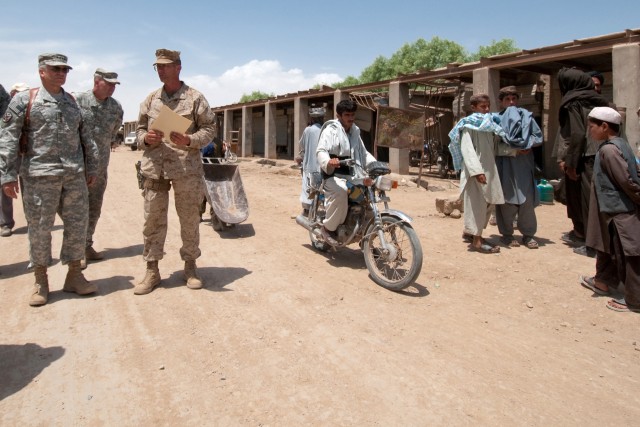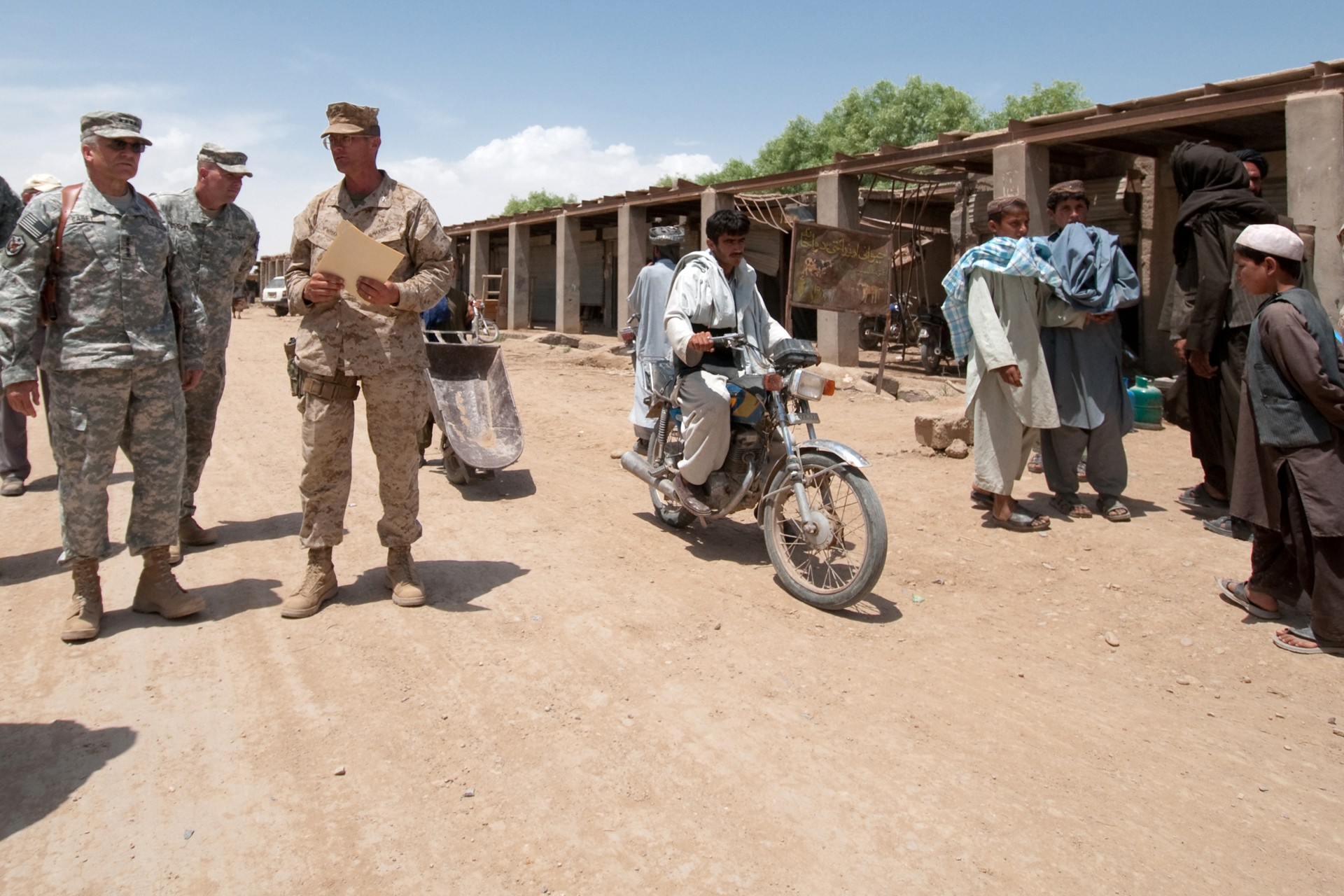
WASHINGTON (May 6, 2010) -- The Army is continuing the most fundamental and profound series of changes it has seen since World War II, the service's chief of staff said here today.
Gen. George W. Casey Jr. spoke to the Defense Writers Group about the way ahead for the nation's senior service and his observations from a recent trip to Iraq and Afghanistan.
The Army will continue rebalancing the force to handle the range of conflicts the nation faces today, Casey said. The fiscal 2011 budget now on Capitol Hill contains the resources to finish Army transformation from a Cold War-era formation to one that is relevant in the 21st century.
"We are moving to put the whole Army on a rotational model, much like the Navy and Marine Corps have been on for years," Casey said. "We have to do that, because I have to continue to generate trained and ready forces for employment around the world for the next decade or so."
The service will complete the "modularization" of the forces with the funds from the 2011 budget. Army officials also will continue to tinker with the shape of the force and the training that Soldiers receive, the general said.
"We know a lot more about war today than we did in 2002-2003, when this idea was proposed," he explained. "We are going to continue to adapt."
The world is in a period of fundamental and continuous change, Casey said, and everything the Army does has to be flexible and adaptable.
Casey said he is optimistic about the security situation in Iraq. He said U.S. forces there are doing well in setting up the "advise and assist" brigades that will take over from American combat units in September. All U.S. forces will be out of Iraq by the end of 2011.
Casey also observed that Iraq's political situation "is still very difficult, as the government forming process goes forward."
Casey also visited regional commands South and East in Afghanistan. "In Marja, I walked down a street that you wouldn't have flown over a couple of months ago," Casey said. "I was very impressed with what the Marines are doing there as they move into the 'hold and build' phase. It's just going to take time."
He noted "positive atmospherics" from the Soldiers and Afghans. "There is a sense of positive momentum," Casey said.
Casey also discussed the need for better dialogue within the Army about risk.
"The superior commanders have to create an environment where their subordinates are comfortable coming back to them to say, 'I can't do what you've asked me to do on the timelines you want with the resources you've given me,'" the general said. The Army's "can-do" attitude sometimes gets the better of commanders, he said, and they will try to do missions without the resources they need.
Casey said he is proud of the way Soldiers and their families have responded to almost a decade of war, noting that he'd have given a different answer five years ago if asked whether the Army could go to a cycle of one year deployed followed by a year at home.
"I would have said, 'You're nuts,'" Casey said. "What I've seen is you cannot discount the courage and commitment of this generation of young Americans. It is remarkable to me what they have done and what they have endured."
The vocal support of the American people and Congress for the armed forces has played a large role in holding the force together, he said.
"We've done some things that have helped this, too," he added. "We're a very competent, seasoned, confident professional force.
"But, we are stretched," Casey acknowledged, pointing out that Army families feel a great deal of that strain.
"We were asking them to endure [a] significantly greater burden than they signed up for," Casey said. "So, we doubled the amount of money dedicated to family programs. We also accelerated the growth of the Army."
The original plus-up for the Army was supposed to be finished in 2012. But families thought that was too far into the future, Casey said. Defense Secretary Robert M. Gates, he said, allowed the service to speed up recruiting for the larger force. The Army finished its plus-up last year.
"That additional growth has really helped us," the general added.
Some 94,000 American servicemembers are in Iraq, and 87,000 are in Afghanistan. Casey said roughly 90 percent of the Soldiers in the Army have deployed, are in units with orders to deploy, or are in basic training and advanced individual training. "Everybody is moving toward the fight," Casey said.
Asked if the Army is ready to implement changes if Congress repeals the law that bars openly gay Soldiers from serving, Casey said he needs to wait for the results of a study that Gates commissioned to investigate that question. Jeh C. Johnson, the Defense Department's general counsel, and Gen. Carter F. Ham, commander of U.S. Army Europe, are leading the study panel.
"We don't know what we need to do yet," Casey said. "This will take shape between now and the first of December."

Social Sharing